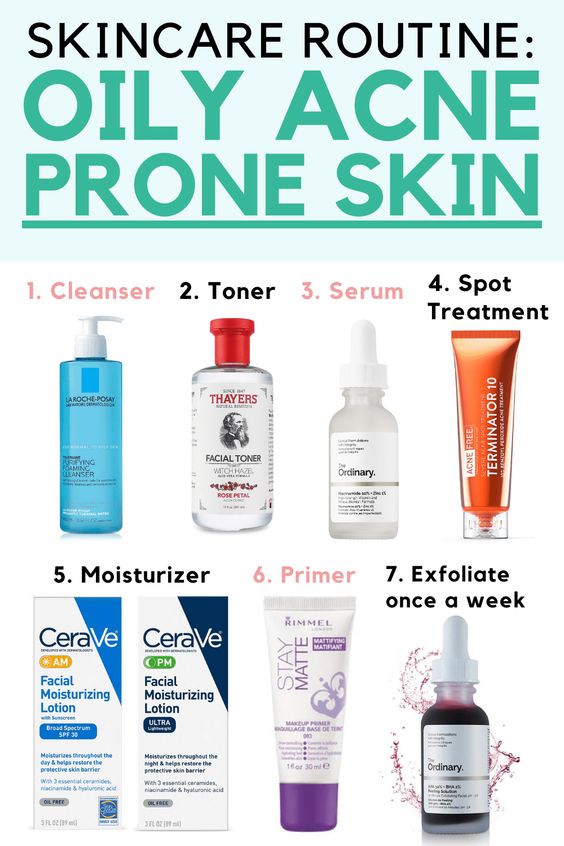Hello everyone! If you’ve been following my blog, you know that I have been working as a medical assistant at an ophthalmology clinic for about a year now. A couple of readers have asked for tips on how to become a medical assistant, and I would love to share my insight with you!
Along with going through the process of applying for a medical assistant position, I’ve also interviewed other students for MA roles at my clinic. There are key qualities that employers look for in a potential candidate, and I will be giving you the inside scoop in this post! Keep reading to learn more about how to become a medical assistant, and make sure to read to the end of the post for 10 medical assistant interview questions and sample answers to guide you as you prep!
Related: Get an Undergraduate Research Position with these 4 Insanely Easy Steps
Related: How to Make the Perfect Resume With No Experience (Plus Free Resume Template!)
What is a Medical Assistant?
A medical assistant supports physicians in completing administrative and clinical tasks within a hospital or clinic setting. Essentially, the role of a medical assistant is to make sure that the physician’s office is running as smoothly as possible.
Some of the administrative tasks of an MA include:
- Welcoming and checking in patients
- Answering phone calls
- Scheduling appointments and/or surgeries
- Answering patients’ questions about their health
- Verifying patients’ insurance eligibility
- Updating patient medical records
Some of the clinical tasks of an MA include:
- Bringing patients to the exam room
- Recording patients’ medical histories
- Doing preliminary patient exams/tests
- Assisting physicians during exams
- Explaining procedures and treatment to patients
Of course, the duties of an MA will vary with what type of clinic they work at. For example, as an ophthalmic medical assistant, I am responsible for testing a patient’s visual acuity and measuring their eye pressure before they are seen by the doctor. A medical assistant at a cardiology clinic would most likely not be administering those tests to patients, haha! On the flip side, I never have to take blood pressure or do any sort of phlebotomy work.
Even though I listed an MA’s general responsibilities above, I truly believe that one of the most important duties of an MA is to create a welcoming and comfortable environment for the patients. Whether I’m speaking to patients at the front desk, in the exam room, or on the phone, I’m always doing my best to make sure that the patient feels comfortable and heard. By doing this, we are able to establish a trusting relationship with patients, which creates a positive healthcare experience for them!

My Experience as a Medical Assistant
I became an MA a few months after I graduated college and have been working at the same ophthalmology clinic for about a year now. The main reason why I wanted this role was because I needed more clinical and patient experience before I applied to medical school. And let me tell you, this position has taught me so much about our healthcare system and how to work with a diverse set of patients!
At my clinic, there are three MAs and one physician working everyday. One MA is at the front desk doing administrative tasks, while the other two MAs are bringing in and preparing patients for their exams (clinical tasks). We all rotate between the front desk and back office on a daily basis so that we each gain experience with the different roles.
I know that some clinics hire MAs strictly to do only administrative or only clinical tasks. I highly recommend that you find a clinic that allows you to do BOTH types of tasks because it will provide you with a holistic experience on how a clinic runs!
One of my favorite aspects about being an MA is having the opportunity to learn more about our patients. They all come from such unique backgrounds and walks of life, so it’s always fun to learn about who they are as a person beyond the clinic walls.
Since I work in ophthalmology, I actually interact with mostly elderly patients. Sometimes even when I don’t ask, they go on to share their entire life story and pieces of their wisdom! It’s such an honor to be able to listen, connect with them, and see them again at their next appointment.
Challenges of Being a Medical Assistant
I intend to be 100% transparent with you on my blog, so I’m also going to be sharing some of the challenges of being an MA. (let’s hope no one I worked for stumbles upon my blog haha! 😅)
As you apply for more biology, research, or health related jobs as a student, you’ll find that many of these types of positions are severely underpaid. Why? Because employers know that we are students who NEED the experience to apply for graduate school. The competition among students who need the experience is high, and employers will always find someone who is willing to work for a small wage.
For example, I currently make $16.50/hr as a medical assistant at a very small clinic. To put that into perspective, my local Chick-Fil-A is hiring at $17/hr right now, and they don’t deal with patients’ health and lives. Of course, this is not the standard wage of an MA in California; it’s going to vary with every clinic. Some places in San Diego pay MAs around $20/hr, but I’ve also heard of a clinic that paid my friend around $14/hr.
I currently pay for all of my expenses including rent, and honestly, I’m not able to save as much as I’d like to. When I took the MA job, I made an intentional sacrifice to give up money for that much needed clinical experience because I was applying to medical school in a couple of months. If finances are an issue for you, do your research on medical assistant jobs that offer a livable wage for you. You can also consider working part-time as an MA and finding a higher paying job (ex: food business).
Another challenge of being an MA is learning to deal with difficult patients. I have had the opportunity to connect with the sweetest, kindest patients. However, I’ve also had my fair share of patients who have screamed at me over the phone or were just plain rude to my face. Even though these types of encounters can ruin your day or even your outlook on healthcare, you just have to learn to not take it personally and remember that you never know what a person is going through. It’s not everyday that this happens, so don’t let this scare you from becoming an MA! As a future healthcare worker, you’re going to have to deal with patients with all sorts of attitudes, so just think of it as practice!
Why should you become a medical assistant?
Here are 3 of my top reasons for why you should consider becoming a medical assistant:
1. If you’re considering a future career in healthcare or medicine, it’s the perfect role to see if you are passionate about working in this field and interacting with patients on a daily basis.
2. As a medical assistant, you’ll learn how to work within a team of other MA’s and doctors. This will definitely improve your communication skills in the healthcare context. Communication is so important in this field because we are dealing with patients’ health; one slip up can drastically affect a patient’s health outcomes.
3. Becoming a medical assistant will help in developing your patient bedside manner and learning how to speak to them in a clinical setting.

How to Become a Medical Assistant
If you Google “how to become a medical assistant,” you’ll probably see a plethora of websites advising you to enroll in a Medical Assistant certification course. I want you to know that you DO NOT need to be certified to become a medical assistant! First of all, the course is very expensive. And since you’re a student, you won’t have time to invest in a lengthy course like this on top of all of your other academic responsibilities.
From my experience in researching MA jobs, the only places that prefer/require one to have a medical assistant certification are positions at hospitals. Smaller clinics such as the one that I work in understand our situation as students and most likely do not require an MA certification.
Personally, I found out about my job through a friend that also works at my clinic. The job listing was advertised in a Facebook group created for students in search of jobs in San Diego. Definitely reach out to friends who work in clinics and see if they know of any job openings. You can also see if there are any local Facebook groups or resources at your university that post job listings for students.
Other than that, you can always look on official hiring websites such as Indeed.
Qualifications to Become an Medical Assistant
Although a certification is not always necessary, it is highly recommended that you have some sort of patient interaction experience when you apply for an MA position. You can easily get this through patient volunteer events offered by health-based student orgs, or you can volunteer at your local hospital for a couple of months.
(SIDE NOTE: I want to let you know that most hospital volunteer programs do not give you hands-on CLINICAL experience that you’ll be receiving as an MA. As a hospital volunteer, you’ll most likely just be speaking with patients and offering them water/basic necessities. Because the experience is so limited, I don’t recommend that you remain a hospital volunteer for an extended period of time,)
In addition to having patient experience, clinics are often looking for candidates who:
- Have good grades
- Exemplify great communication skills (able to communicate with team AND to patients of diverse socioeconomic/cultural backgrounds)
- Can work well in a team
- Have experience in customer service and/or administrative-type jobs.
If you don’t have any patient experience yet, some clinics understand this and are willing to train you! I’ve seen them add that in the description of the job listing. As long as you prove to them that you have the above qualities and are very motivated to learn, you should be good to go!
If you’re submitting your resume, be sure to highlight all of these aspects in your experience section. Read my post on how to create the perfect resume!

10 Medical Assistant Interview Questions & Sample Answers
1. Tell me about yourself
For this question, you’ll be surprised how many applicants just state their name and what school they go to. Employers genuinely want to learn more about you, your career goals, and your past experience! Here are some points that you should mention when asked this question:
- Name
- Year
- University
- Major
- Career goals (ex: Pre-med, Pre-PA, Pre-RN)
- Brief summary of most recent experience
- Brief summary of what you can offer
1. SAMPLE ANSWER – TELL ME ABOUT YOURSELF
My name is Blaze Ann, and I graduated in the summer of 2020 from UCSD as a Biochemistry and Cell Biology major. Currently, I’m pre-med with the goal of becoming a pediatrician and working with kids.
For the past two years, I’ve been a lab assistant at the Moores Cancer Center where I’ve performed administrative duties dealing with patient information as well as laboratory responsibilities.
I understand that for this position as a Medical Assistant, you’re looking for a quick learner with great communication skills and ability to multitask.
Due to my strong background and achievements, I am confident that I have the skills required to succeed in this role and be a great asset to your team. I’m also eager to learn new skills to suit the needs of the clinic.
So that’s a little bit about me!
2. Why do you want to be a Medical Assistant at our clinic?
The answer to this question doesn’t have a specific formula that you can follow. My best advice is that your answer conveys what genuinely interests you about the position. Are you interested in the clinic’s specialty, the clinic’s environment, etc.? I think the most important thing that you should express in your answer is that you align with their mission and would be great fit within the clinic. Here’s my answer:
2. SAMPLE ANSWER – WHY DO YOU WANT TO BE A MEDICAL ASSISTANT AT OUR CLINIC?
After visiting the Eye Center of La Jolla’s website, I was really blown away by the amazing testimonials left by patients. Many patients complimented the staff’s kindness and ability to make them feel comfortable before nerve wracking procedures.
I believe that patient’s experiences and regard for doctors reflects the type of clinic it is. From both the mission statement and testimonials, I can see that there is a high standard for the quality of care in this clinic. This is the type of workplace and atmosphere that I want to be a part of, and I know that I will be able to match that same level of care when I’m working with patients.
3. What previous experience do you have that will suit this role?
To answer this question, you should first look at the job description and see if the clinic explicitly states what qualities/experience they are looking for in an MA. Use those descriptions to guide your answer. For example, let’s say the job description states that they are looking for someone who:
- Has patient interaction or clinical experience
- Exemplifies great communication skills
- Can work well in a team
- Has experience in customer service and/or administrative-type jobs
In your answer, you should list your experiences and connect them to the qualities in the job description. If you don’t have any patient experience, it’s important to tell the interviewers that you are eager to learn!
3. SAMPLE ANSWER – WHAT PREVIOUS EXPERIENCE DO YOU HAVE THAT WILL SUIT THIS ROLE?
I understand that I will be interacting with patients on a daily basis as a medical assistant, and that is something that I’ve truly found joy in as a volunteer at my local hospital. As a volunteer, I was responsible for providing post-surgery patients with water and other basic necessities. Through this experience, I’ve learned how to understand and connect with patients of diverse backgrounds, and I believe this skill will be very beneficial as a medical assistant. Although my patient experience doesn’t extend to the clinical aspect, I am a very fast learner and am always willing to learn.
Another recent experience I have is that I was a lab assistant at the Moores Cancer Center. In this role, I was tasked with administrative tasks such as answering phone calls and updating the online database of patient information. I know that you are also looking for an MA with strong administrative skills, and I believe that my experience will be a benefit to the clinic!
4. Tell me about a time when you had to address an angry patient or customer.
You may get situational questions on your interview, so it’s important to have several experiences in the back of your mind that you can pull from instantly.
When answering situational question, use the STAR method:
Situation: Describe the situation/issue you encountered
Task: Describe the task that you were responsible for
Action: Describe what you did to resolve the issue
Result: Describe what happened, what you would have changed, and what you would do if a similar situation occurred while you’re an MA at the clinic
If you’ve never been in a situation that the interviewer asks for, be honest and just talk about what you would hypothetically do.
4. SAMPLE ANSWER – TELL ME ABOUT A TIME WHEN YOU HAD TO ADDRESS AN ANGRY PATIENT OR CUSTOMER.
A time when I encountered an angry customer was when I was working as a sales rep at JCrew around two years ago. This customer came in to return clothes, but unfortunately it exceeded our return policy. I calmly let the customer know about the issue at hand, which resulted in them becoming very angry and raising their voice at me. There was nothing further that I can do in terms of the return policy, so I did my best to appease the situation. After listening to the customer’s concerned, I apologized to them and told them I understood where they were coming from. Since there was nothing more that I could do as a sales rep, I asked them if they would like to speak with my manager, which they agreed to.
If I ever encountered an angry patient, I would take a similar approach. I would listen to their concerns, try to come up with a solution with them if possible, and if not, I would ask the physician in charge for guidance.
5. What role do you play within a team? Can you give me an example?
Interviewers want to know that you take initiative while also being able to support your team members. Be sure to show that you are good at communication and are willing to step into fill others’ roles when needed. When answering this question, use the STAR method:
Situation: Describe the situation/issue you encountered
Task: Describe the task that you were responsible for
Action: Describe what you did to resolve the issue
Result: Describe what happened, what you would have changed, and what you would do if a similar situation occurred while you’re an MA at the clinic
5. SAMPLE ANSWER – WHAT ROLE DO YOU PLAY WITHIN A TEAM? CAN YOU GIVE ME AN EXAMPLE?
In a team setting, I am able to play both roles of the supporter and initiator, and I believe that I’m able to take on such dynamic roles because of my strong communication skills.
As president of Healing Hands at UCSD, I learned how important communication is for a team to be efficient and have maximum potential. If a team doesn’t have good communication, it will take longer to reach an end goal, and some people will end up doing more work than others, which can cause conflict.
As president, I made sure to let my officers know their tasks weeks in advance so that they were aware of deadlines and had enough time to do them. I also lead weekly board meetings where I encouraged everyone to share what they were working on as well as provide input future events. One of the best things about being on a team is that there are a diverse set of people, so a diverse set of ideas that can be brought to life.
I also implemented monthly check ins where I got to meet with one on one with each officers. If they ever felt like they had too much on their plate, I encouraged them to take a break and stepped in to take on their responsibilities in the mean time.
Overall in a team, I believe that I’m really good at communicating what needs to be done, encouraging others to share their thoughts, and most importantly listening. If anyone needs support, I’m always willing to step in.
In a clinical setting, I know how important coordination is within a patient’s healthcare team and how it can significantly affect a patient’s healthcare experience. If I am hired, I believe that my strong communication skills will be a great asset for your team.
6. Tell me about a time when you had to handle conflict?
Situation: Describe the situation/issue you encountered
Task: Describe the task that you were responsible for
Action: Describe what you did to resolve the issue
Result: Describe what happened, what you would have changed, and what you would do if a similar situation occurred while you’re an MA at the clinic
6. SAMPLE ANSWER – TELL ME ABOUT A TIME WHEN YOU HAD TO HANDLE CONFLICT?
In the summer of 2019, I was a workshop facilitator for a program called OASIS. I had the opportunity to tutor general chemistry with a co-facilitator to incoming freshmen that summer. As you can imagine, each person has their own style of teaching, so it was challenging in the beginning to create lesson plans with my co-facilitator. There was this one instance where I wanted to go more in-depth on the theoretical side of a topic, while she wanted to dive straight to practice problems given that they had already learned the topic in lecture.
We decided to sit down and explain to each other the reasoning behind our own ideas. After listening to her thoughts, I eventually saw the equal importance of having more practice problems, so I suggested that we compromise. We decided to have a brief theoretical introduction of the topic and then go to practice problems, and after each problem, we would dive deeper into the theory behind it just to check their understanding.
By having open communication and compromising, we maintained a good relationship. This was incredibly since our students’ education comes first and having a bad relationship may have affected their learning experience.
As a medical assistant, I will do my best to avoid even getting to the point of conflict. However, if I do find myself in conflict with another member of my team, I will listen to their point of view and work with them to see if we can come up with a compromise. If we are not able to come up with a solution, I will ask them if we can bring it up to our supervisor for advice on how to handle the situation. Overcoming conflict and coming up with a solution will help improve our team’s coordination. We can also avoid the same issue from occurring in the future.
7. What are your biggest strengths and weaknesses?
It’s important to answer this question honestly, without raising any red flags to your interviewer. For your strength, highlight a quality of yours that you know the interviewers are looking for (from the job description!). For your weakness, the key is to talk about something that you struggle AND how you are also working to improve it!
7. SAMPLE ANSWER – WHAT ARE YOUR BIGGEST STRENGTHS AND WEAKNESSES?
One of my strengths is that I will go the extra mile to make sure that whatever I do or create is the best quality possible. On the contrary, this can play as one of my weaknesses since I have a tendency to sacrifice other responsibilities that I have in life for work.
For example, as an organic chemistry tutor, I had to create lesson plans and practice problems that supplemented my students’ lectures. Due to budget reasons, my job allotted around 1.5 hours of paid prep, but I would often spend extra unpaid time and sacrifice study time just to make sure that the lesson plans were accurate and helpful to my students, and that I was prepared for the upcoming workshop. I went above and beyond to make sure that if I were a student, the lesson plan would help me succeed in the class.
I’ve learned when I go above and beyond sometimes, I end up sacrificing my own health and needs, which could potentially affect my performance at work. This is something that I’m actively working on in my work and daily life by setting boundaries for myself and checking in with my mental health. If work is too much to handle, it’s okay to step back and ask for help.
8. Why are you the best candidate for this position?
This is the time to highlight your best qualities that the interviewers are looking for! If you didn’t have a chance to showcase an important skill yet, do so here! In addition to highlighting your skills, I think it’s also important to emphasize how you are passionate about patient care. Interviewers don’t want to just hire a robot that can complete tasks. They want to hire an MA that can connect with patients and ensure that patients have a positive experience at the clinic. Here’s what I would say:
8. SAMPLE ANSWER – WHY ARE YOU THE BEST CANDIDATE FOR THIS POSITION?
I believe that I am the best candidate for this position because of the wide array skills that I can bring to the table. My previous experiences has helped me develop and improve my qualities of being a team player, strong communicator, and quick learner. These skills will help me excel in the clinical and administrative aspects of this role.
Most importantly, I love connecting with patients and will go above and beyond to ensure that they each feel like a valued member of this clinic. I know how nerve wracking and scary it can be to visit the doctor’s office, and my everyday goal as a medical assistant will be to create a warm atmosphere for the patients and provide them with the high quality care that they deserve.
9. How many days a week can you work? How long can you commit to this position?
Make sure that you have an answer ready for these questions. Usually, the job description lists how many days and how long they require you to work. You should be able to meet those requirements.
10. Do you have any questions for us?
Asking questions shows that you are interested in the job and clinic. You should definitely have a few questions prepared. Here are some questions that you can ask:
SAMPLE QUESTIONS TO ASK AT END OF INTERVIEW
1. What is your favorite aspect of being a medical assistant?
2. Can you describe what a typical day as an MA is like?
3. What do you like most about working in this clinic in particular?
4. What are the characteristics of someone who would succeed as an MA?
5. What are some of the challenges that people in this role or team encounter?
6. Can you talk about the culture in this clinic and team?
Conclusion
Thanks for reading! Always feel free to email me at p31beauty@yahoo.com or DM me on Instagram (@p31beauty) if you have any questions! Best of luck with job hunting!
Love,
Blaze Ann












